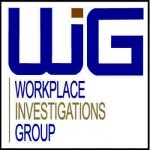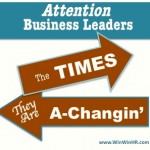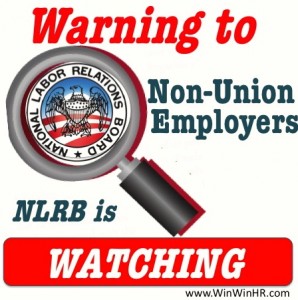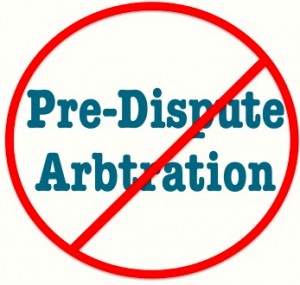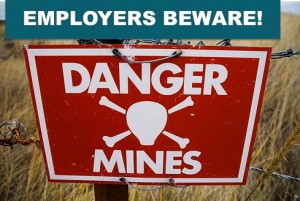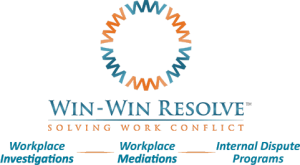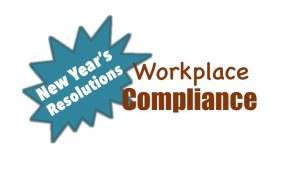 With year end just around the corner, many business leaders are, no doubt, looking forward to spending some quality time with family. This is also the traditional time of year that leaders take the time to reflect on the past year and re-prioritize their objectives with a goal of kicking off the new year with renewed vigor and a clear mission.
With year end just around the corner, many business leaders are, no doubt, looking forward to spending some quality time with family. This is also the traditional time of year that leaders take the time to reflect on the past year and re-prioritize their objectives with a goal of kicking off the new year with renewed vigor and a clear mission.
Workplace compliance and compliance leadership is no exception.
Navigating the ever changing legal landscape of workplace compliance is a constant challenge. In today’s world, employee whistleblowers have more protection than they’ve ever had and there has been a surge of government investigations and retaliation lawsuits by employees.
We are in an era when federal and state governments are making it easier and easier for employees to make whistleblower claims via national and state hotlines. Governmental agencies and plaintiff’s attorneys are wooing employees with promises of large rewards to employees who report alleged fraud or other wrongdoing.
The good news for employers is that research shows that despite these new developments, employees prefer to resolve their concerns internally. Research by the nonprofit Ethics Resource Center found that 84% of whistleblowers that reported a compliance concern outside their company first reported the concern internally. It was only after the employer failed to address the concern satisfactorily that the employee reported the concern to a third-party outside the company.
Against that backdrop, I offer the following three suggested steps for business leaders to take now. Get started now on these resolutions to mitigate the risk of a compliance miss or distraction in 2015.
In remarks earlier this year before the International Chamber of Commerce and the U.S.Council for International Business, a Deputy Assistant Attorney General for the Department of Justice commented that “[c]ompliance is a culture, not just as policy.”
Indeed.
Creating a culture of workplace compliance is not done overnight. It takes careful planning, sufficient resources and a committed leadership team.
As the Department of Justice has recognized, there is no one size fits all for an effective compliance program. An effective compliance program will be tailored to the specific concerns, industry concerns and company culture.
With that said, here are three things leaders everywhere can do now to help create and maintain a culture of compliance within your organization.
Effective compliance programs ensure not only that they have well-crafted policies but also that those policies are well-communicated. Behind the most effective compliance programs are documented communication plans that leaders use to ensure your compliance message is heard.
One of the cornerstones of an effective communication plan is ensure that employees know how to raise compliance concerns or ask compliance questions.
Hence, my first recommended resolution.
Intuitively, we know that repetition is the basis of any learning process, and it’s no different for workplace compliance. If business leaders want to increase the likelihood that their employees will report compliance concerns internally, they need to communicate that message repeatedly throughout the year with some frequency. The message should include a reminder of company policies and expectations for compliance as well as instructions on how to raise compliance concerns or ask compliance questions.
Many experts in the field suggest taking a marketing approach to compliance messaging. Click here to see a template shared by the consulting company Compliance Wave for creating a compliance communication plan.
In workplace compliance, employee trust is critical. If employees trust your investigation process, they are statistically more likely to report their compliance concerns internally to you instead of to third-parties on social media or to a governmental agency or plaintiff’s attorney. If the reporting employee trusts the process you use to resolve compliance concerns, research also shows that the employee is also more likely to accept the results of the investigation, even if the employee disagrees substantively with the outcome.
I wrote an article earlier this year that contained six tips for increasing employee trust of internal investigations. That article included communication strategies and practical “how to” recommendations companies can use to increase the likelihood employees will first use internal reporting tools and that the reporting party will accept the results of the company’s internal investigation and refrain from raising the concern to an external third-party.
Click here to read those tips.
Regardless of how well operated an organization is, there will, inevitably, come a time when a compliance concern is raised that needs to be investigated. Planning for that day is absolutely critical.
Ask yourself: Who do you have within your organization who is well-trained and ready to conduct the necessary prompt, impartial and thorough investigation into an allegation of workplace misconduct or compliance concern?
A recent article in HR Magazine highlighted the risks associated with conducting internal workplace investigations. As Faith Laframboise, North American manager of HR for Spirol, a fastener manufacturer based in Danielson, Conn. stated in the article, “I don’t know any other business area where things can change so dramatically in a fairly short period of time as far as legislation or best practice or new research.” Ms. Laframboise recalled the trepidation she felt conducting her first workplace investigation: “It was a challenging and quite intimidating thing to have to handle for the first few times.” Despite these challenges, in today’s world, being able to conduct an effective internal investigation that will withstand legal scrutiny is a core competency for HR professionals.
The good news is that there is excellent training available for HR managers or others who may be tasked with conducting an internal workplace investigation. One source for this type of training is Workplace Investigations Group, which offers open enrollment training courses as well as customized, on-site training programs for larger organizations.
Lorene Schaefer, Esq. is President of Win-Win Resolve, a company founded by employment attorneys to help businesses solve workplace conflict and compliance concerns at the lowest and earliest levels possible. Its consulting services focus on the following six areas: Employee Hotlines, Workplace Investigations, Workplace Mediation, M&A Integration Teams & Services, Personnel Protocol Audits & Services.









